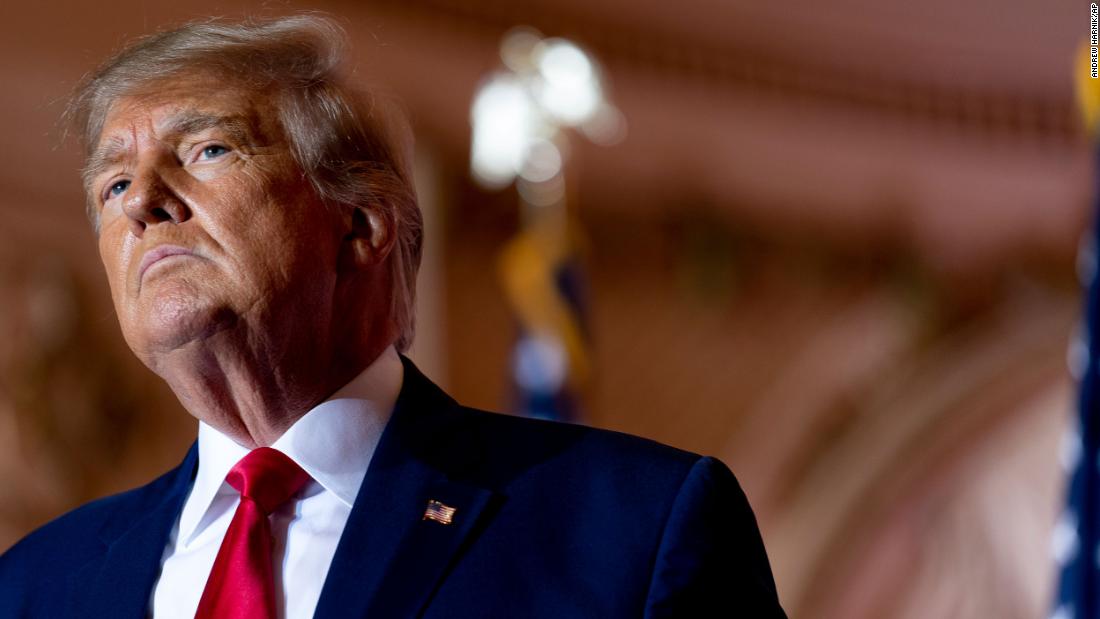There have been questions around former President Donald Trump‘s wealth and taxes for decades.Trump has long claimed that he is enormously wealthy businessman, building a personality and brand on that narrative.
He spent years protecting that image — keeping his business dealings, net worth and how much of his money went to the government away from the public.
That long endeavor may come to an end Tuesday, when the House Ways and Means Committee decides whether to make years of Trump’s tax returns public.
Some advisers are concerned about the potential release and what may lie in the never-before-seen documents, particularly as his recently launched third presidential run has faltered out of the gate.
Others believe Trump will be able to spin any lack of payment as him “gaming the system.” Regardless, Trump is facing one of his greatest fears— public scrutiny of his finances.
Trump’s tax returns have always been front and center in his political career. As early as 2011, when Trump toyed with a future presidential run, Trump said he might release his taxes, if then President Obama released his birth certificate.
Two sources close to Trump said they believed he wouldn’t actually run for office, given the financial scrutiny.
When running for president in 2016, Trump claimed he would release his taxes, but was under “a routine” audit and could only do so after it was completed. He became in the first president modem history to refuse to do so.
Two years later, amid calls to make his tax returns public, Trump said his tax return was “big” and “complex” and “people would not understand it.”
In 2019, Trump was compelled to turn over some of his tax returns to New York investigators. Former Manhattan District Attorney Cyrus Vance Jr. investigated Trump and his business dealings for years.
In 2020, the The New York Times obtained two decades worth of Trump’s tax returns and found that Trump paid just $750 dollars in federal taxes in both 2016 and 2017 and that he had paid no income tax in at least 10 years. The Times also concluded that Trump was facing “hundreds of millions of dollars in debt coming in the future. The report enraged Trump who claimed it was “fake news.”
The only details about Trump’s taxes to become public came out during testimony last month in the criminal tax fraud trial of his real estate company when a prosecutor handed portions of Trump’s taxes to a witness.
Trump’s long-time accountant testified Trump reported losses on his personal tax returns every year from 2011 to 2018.
Over two years his losses totaled nearly $1 billion. The former president’s 2010 personal tax return reported losses of almost $200 million and in 2009 those losses totaled roughly $700 million, the accountant testified.
The House Ways and Means committee first sought Trump’s returns in 2019 as part of an assessment of the IRS program that audits presidents. Trump sued to stop the release and eventually the Supreme Court unanimously rejected his request to block the committee from obtained his records.
Rumors have swirled since Trump was a young real estate mogul that he was not a rich as he has projected himself to be. Earlier this year, New York attorney general, Letitia James, filed a civil lawsuit against Trump, his children and Trump Org alleging that their investigation had “uncovered the fact that Donald Trump and the Trump Organization engaged in significant fraud to inflate his personal net worth by billions of dollars to illegally enrich himself and cheat the system.” The Trump Org was convicted of a tax fraud scheme earlier this month.
Trump is the most politically vulnerable he has been in years. Today’s decision coupled with tomorrow’s release of transcripts, which are likely to be negative, could drive him further down the hole as he prepares to start his 2024 political campaign in earnest the first week of January.
CNN’s Kara Scannell contributed reporting to this post.

